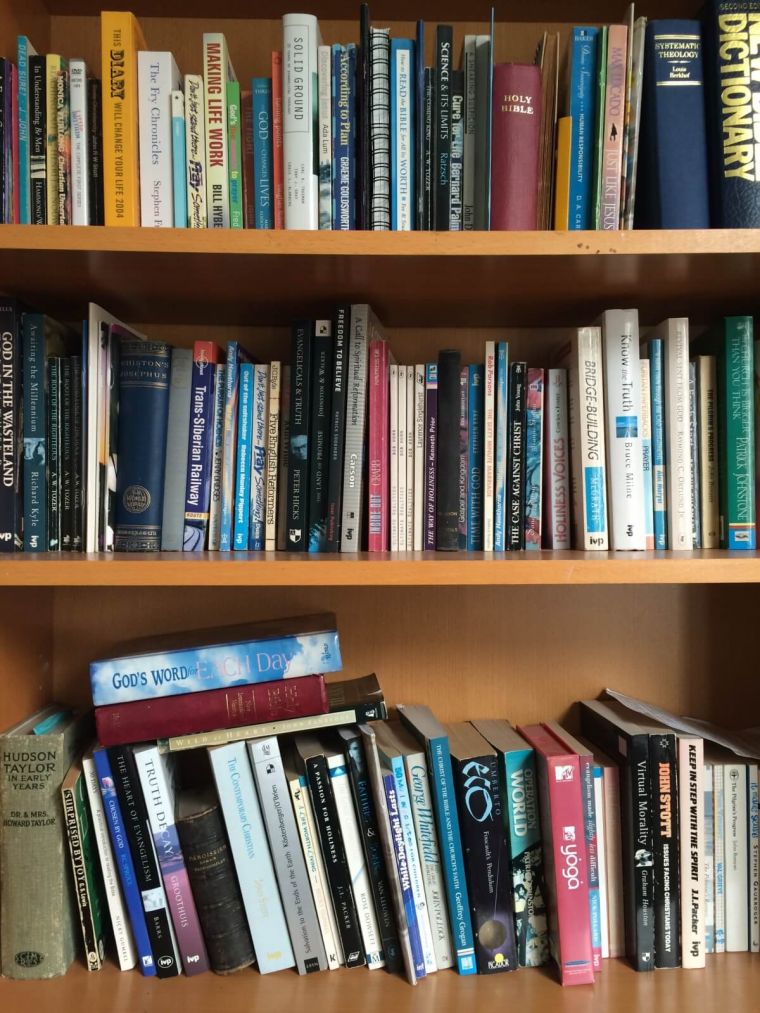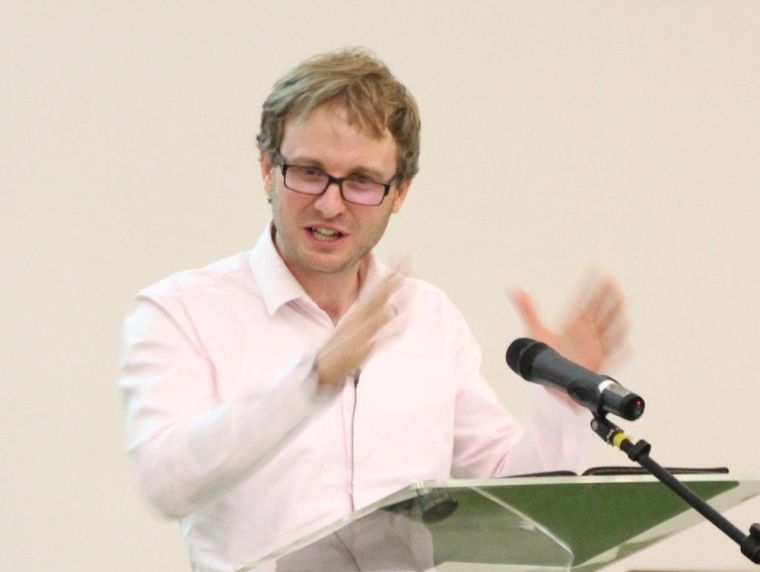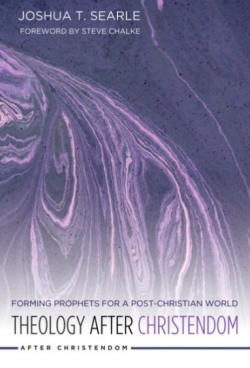What is the point of theology?
What does theology have to say to the homeless people on the streets of our own cities who die in solitude, unknown and unpitied without anyone even to mourn their loss? What difference does theology make to the lives of children confined to an AIDS orphanage in Eastern Ukraine? How does theology speak into the plight of the starving, the refugee, the dementia patient, the cancer sufferer, or the war-traumatised child in Syria?
What does theology mean to the wretched of the earth, to those without status, wealth, or power? How does theology connect with the lived experience of the poor in spirit?
These are some of the questions I raise in my new book, Theology After Christendom.
For a long time I've been frustrated by the usual view that theology is nothing more than a dry academic discipline or a nerdy hobby of a few eccentric Christians. For many people in the world today (especially for so-called 'millennials' like me), God seems to have died or is viewed as so boring and irrelevant that they don't bother to give Him a second thought. I think that part of the reason that God seems to be dead is because he has not been served well by so much modern theology, which has tended to belittle human beings and reduce God to a one-dimensional caricature.
In my book I try to explain that all Christians have a theology; if you're a Christian, it means you are a theologian – whether you like it or not! This is because theology is simply a technical term that describes the way you think not only about God, but about life's ultimate questions, such as, 'What's the meaning of life? Why am I here? What do I really believe in? What do I hope for? What are my values? Who am I?', etc.

As I explain in the book, the choice for a Christian is never between either having a theology or not having a theology. The choice, rather, is always between having a good theology or having a bad theology. A good theology is one that is life-giving, life-enhancing, and faithful to the biblical teaching, whereas a bad theology is one that is shallow, thoughtless and life-denying. Therefore, one of the main themes of my book is that theology is not a dry academic discipline, but an inevitable and unavoidable part of the life of every Christian.
Having made this key point, I go on to describe what a good theology looks like in theory and practice. I argue that theology today should be more concerned with what God is doing in the world than with what Christians are doing in churches. In other words, theology needs to put much more emphasis on the Kingdom of God, rather than focusing too narrowly on the church. I make the case that theology should primarily serve not the church, but the Kingdom of God. In simple terms, whereas theology used to say, 'Church, Church, Church!', theology today needs to say, 'Kingdom, Kingdom, Kingdom!'
The future of Christianity today, I argue, depends on whether it can meet the challenges of the new times. The painful travails of living in a secular world and the gradual disestablishment of Christianity from an institution to a movement are like birth pangs that presage the beginning of a new era of hope and renewal.

Amid the prevailing crisis of faith and the apparent dominance of secular humanism in today's society, I have a presentiment that the genesis of a new Christian movement, unleashed from its institutional church trappings, is under way in the world. The Kingdom of God is poised to break into world history and yield its mighty harvest. The problem is that while the harvest is plentiful, the labourers are few. My hope is that this book will make its own modest contribution to persuading more people to help make the Kingdom of God a visible reality in their own situations.
I confess that in my book I haven't held back from criticising a lot of what goes on in churches today. I've called churches to repent of the ways in which they have so often allowed Christianity to be shackled by demonic religious structures of power and domination, which have inhibited the freedom of the Spirit, suppressed the truth of the gospel and impeded the coming of the Kingdom of God in the world.
The most important chapters from my perspective are chapters 5 and 6, because it's here that the book starts to unfold a positive vision of the difference that a Kingdom-focused theology could make towards the transformation of the world. Chapter 8 is also significant in this regard, because it's here that I give the specific example of the Northumbria Community (where I grew up and came to faith) in order to demonstrate what the vision of 'Church Without Walls' looks like in practice.
In chapter 6 I offer an outline presentation of a theology that is attuned to the dynamic movement of the Holy Spirit in the world today. The fundamental realities of freedom, compassion, and creativity are proposed as core elements of a transformative theology today. I suggest that these three concepts offer an appropriately Trinitarian focus for theology, since each spiritual reality exemplifies the basic principles of Father (freedom), Son (compassion), and Holy Spirit (creativity), and expresses the unity in diversity of the Sacred Trinity.

While I offer some constructive criticisms, my aim ultimately is not to bring down, but to build up. I hope this is clear from the following words in my conclusion:
'A day is coming when Christians will finally realise that they are sent by God not to serve and sustain the church, but to redeem the world in the power of Christ's compassion. In the coming years, we will witness a flowering of solidarity among diverse Christians as the walls of denominationalism and sectarianism come crashing down. Tribal identities will evaporate like the morning dew in the light of God's glorious new order in which all who follow Jesus will come to see that they are one in Christ. Instead of institutionalised religion, there will be a gospel movement of compassion that expresses itself in a new vision of church without walls. And God will delight in this...'
Joshua T Searle is a British Baptist theologian from Spurgeon's College. He has just brought out a new book, entitled Theology After Christendom: Forming Prophets for a Post-Christian World. You can read more about him and his work here.











